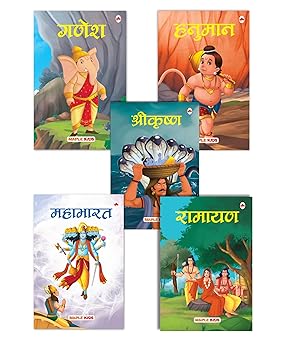सोरठा :
बंदउँ मुनि पद कंजु रामायन जेहिं निरमयउ।
सखर सुकोमल मंजु दोष रहित दूषन सहित॥14 घ॥
\ मैं उन वाल्मीकि मुनि के चरण कमलों की वंदना करता हूँ, जिन्होंने रामायण की रचना की है, जो खर (राक्षस) सहित होने पर भी (खर (कठोर) से विपरीत) बड़ी कोमल और सुंदर है तथा जो दूषण (राक्षस) सहित होने पर भी दूषण अर्थात् दोष से रहित है॥14 (घ)॥
बंदउँ चारिउ बेद भव बारिधि बोहित सरिस।
जिन्हहि न सपनेहुँ खेद बरनत रघुबर बिसद जसु॥14 ङ॥
मैं चारों वेदों की वन्दना करता हूँ, जो संसार समुद्र के पार होने के लिए जहाज के समान हैं तथा जिन्हें श्री रघुनाथजी का निर्मल यश वर्णन करते स्वप्न में भी खेद (थकावट) नहीं होता॥14 (ङ)॥
बंदउँ बिधि पद रेनु भव सागर जेहिं कीन्ह जहँ।
संत सुधा ससि धेनु प्रगटे खल बिष बारुनी॥14च॥
मैं ब्रह्माजी के चरण रज की वन्दना करता हूँ, जिन्होंने भवसागर बनाया है, जहाँ से एक ओर संतरूपी अमृत, चन्द्रमा और कामधेनु निकले और दूसरी ओर दुष्ट मनुष्य रूपी विष और मदिरा उत्पन्न हुए॥14 (च)॥
दोहा :
बिबुध बिप्र बुध ग्रह चरन बंदि कहउँ कर जोरि।
होइ प्रसन्न पुरवहु सकल मंजु मनोरथ मोरि॥14 छ॥
देवता, ब्राह्मण, पंडित, ग्रह- इन सबके चरणों की वंदना करके हाथ जोड़कर कहता हूँ कि आप प्रसन्न होकर मेरे सारे सुंदर मनोरथों को पूरा करें॥14 (छ)॥
चौपाई :
पुनि बंदउँ सारद सुरसरिता। जुगल पुनीत मनोहर चरिता॥
मज्जन पान पाप हर एका। कहत सुनत एक हर अबिबेका॥1॥
फिर मैं सरस्वती और देवनदी गंगाजी की वंदना करता हूँ। दोनों पवित्र और मनोहर चरित्र वाली हैं। एक (गंगाजी) स्नान करने और जल पीने से पापों को हरती है और दूसरी (सरस्वतीजी) गुण और यश कहने और सुनने से अज्ञान का नाश कर देती है॥1॥
गुर पितु मातु महेस भवानी। प्रनवउँ दीनबंधु दिन दानी॥
सेवक स्वामि सखा सिय पी के। हित निरुपधि सब बिधि तुलसी के॥2॥
श्री महेश और पार्वती को मैं प्रणाम करता हूँ, जो मेरे गुरु और माता-पिता हैं, जो दीनबन्धु और नित्य दान करने वाले हैं, जो सीतापति श्री रामचन्द्रजी के सेवक, स्वामी और सखा हैं तथा मुझ तुलसीदास का सब प्रकार से कपटरहित (सच्चा) हित करने वाले हैं॥2॥
कलि बिलोकि जग हित हर गिरिजा। साबर मंत्र जाल जिन्ह सिरिजा॥
अनमिल आखर अरथ न जापू। प्रगट प्रभाउ महेस प्रतापू॥3॥
जिन शिव-पार्वती ने कलियुग को देखकर, जगत के हित के लिए, शाबर मन्त्र समूह की रचना की, जिन मंत्रों के अक्षर बेमेल हैं, जिनका न कोई ठीक अर्थ होता है और न जप ही होता है, तथापि श्री शिवजी के प्रताप से जिनका प्रभाव प्रत्यक्ष है॥3॥
सो उमेस मोहि पर अनुकूला। करिहिं कथा मुद मंगल मूला॥
सुमिरि सिवा सिव पाइ पसाऊ। बस्नउँ रामचरित चित चाऊ॥4॥
वे उमापति शिवजी मुझ पर प्रसन्न होकर (श्री रामजी की) इस कथा को आनन्द और मंगल की मूल (उत्पन्न करने वाली) बनाएँगे। इस प्रकार पार्वतीजी और शिवजी दोनों का स्मरण करके और उनका प्रसाद पाकर मैं चाव भरे चित्त से श्री रामचरित्र का वर्णन करता हूँ॥4॥
भनिति मोरि सिव कृपाँ बिभाती। ससि समाज मिलि मनहुँ सुराती॥
जे एहि कथहि सनेह समेता। कहिहहिं सुनिहहिं समुझि सचेता॥5॥
होइहहिं राम चरन अनुरागी। कलि मल रहित सुमंगल भागी॥6॥
मेरी कविता श्री शिवजी की कृपा से ऐसी सुशोभित होगी, जैसी तारागणों के सहित चन्द्रमा के साथ रात्रि शोभित होती है, जो इस कथा को प्रेम सहित एवं सावधानी के साथ समझ-बूझकर कहें-सुनेंगे, वे कलियुग के पापों से रहित और सुंदर कल्याण के भागी होकर श्री रामचन्द्रजी के चरणों के प्रेमी बन जाएँगे॥5-6॥
दोहा :
सपनेहुँ साचेहुँ मोहि पर जौं हर गौरि पसाउ।
तौ फुर होउ जो कहेउँ सब भाषा भनिति प्रभाउ॥15॥
यदि मु्झ पर श्री शिवजी और पार्वतीजी की स्वप्न में भी सचमुच प्रसन्नता हो, तो मैंने इस भाषा कविता का जो प्रभाव कहा है, वह सब सच हो॥15॥
Introduction to Valmiki Vandana
Meaning of Valmiki Vandana
Valmiki Vandana is a devotional tribute to sages and divine beings celebrating their teachings and spiritual wisdom.
Significance in Devotion
It highlights the role of sacred chants in nurturing faith inspiring moral values and connecting devotees to the divine.
Historical Roots
Valmiki Vandana traces back to ancient scriptures and Vedic traditions preserving devotional knowledge through generations.
Cultural Role
The Vandana strengthens cultural identity and maintains the continuity of spiritual practices.
Legacy
Valmiki Vandana continues to inspire devotion discipline and reverence for divine wisdom.
Famous Devotees and Saints
Life of Sage Valmiki
Sage Valmiki authored the Ramayana and inspired generations through his devotion and teachings.
Life of Lord Brahma
Lord Brahma represents creation and is revered as the source of all Vedic knowledge and wisdom.
Life of Lord Shiva
Lord Shiva symbolizes transformation meditation and supreme consciousness guiding devotees towards spiritual awakening.
Life of Goddess Parvati
Goddess Parvati represents divine energy and devotion teaching love discipline and spiritual balance.
Life of Other Saints
Other revered saints contribute teachings that inspire ethical living meditation and faith in the divine.
Significance of Vandana
Spiritual Guidance
Reciting Vandana provides guidance for righteous living and strengthens inner faith and mindfulness.
Emotional Connection
Vandana creates an emotional bond between devotees and divine beings deepening devotion.
Cultural Influence
Vandana preserves ancient traditions ritual practices and spiritual heritage.
Moral Teachings
Devotional chants convey lessons on compassion duty and ethical living.
Daily Practice
Integrating Vandana into daily routine enhances meditation devotion and spiritual discipline.
Chants and Recitation
Popular Chants
Devotees recite Valmiki Vandana to invoke blessings and cultivate spiritual focus.
Timing for Recitation
Mornings and evenings are considered ideal times for chanting to align with spiritual practices.
Integration with Meditation
Recitation combined with meditation strengthens mental clarity and divine connection.
Group Chanting
Participating in group chanting amplifies spiritual energy and collective devotion.
Benefits of Recitation
Regular chanting enhances focus reduces stress and nurtures a deep sense of spiritual fulfillment.
Conclusion and Spiritual Significance
Long-term Benefits
Practicing Valmiki Vandana nurtures devotion ethical living and spiritual growth over a lifetime.
Community Impact
Sharing and reciting Vandana strengthens social bonds and collective faith.
Connection with Divinity
Reciting Vandana deepens connection with divine forces and enhances spiritual experiences.
Role in Festivals
Vandana enriches religious festivals ceremonies and devotional gatherings.
Summary
Valmiki Vandana exemplifies the power of devotional chants to inspire faith morality and spiritual growth.
Valmiki Vandana is a devotional tribute to sages and divine beings celebrating their teachings and spiritual wisdom.
It highlights the role of sacred chants in nurturing faith inspiring moral values and connecting devotees to the divine.
Valmiki Vandana traces back to ancient scriptures and Vedic traditions preserving devotional knowledge through generations.
The Vandana strengthens cultural identity and maintains the continuity of spiritual practices.
Valmiki Vandana continues to inspire devotion discipline and reverence for divine wisdom.
Sage Valmiki authored the Ramayana and inspired generations through his devotion and teachings.
Lord Brahma represents creation and is revered as the source of all Vedic knowledge and wisdom.
Lord Shiva symbolizes transformation meditation and supreme consciousness guiding devotees towards spiritual awakening.
Goddess Parvati represents divine energy and devotion teaching love discipline and spiritual balance.
Other revered saints contribute teachings that inspire ethical living meditation and faith in the divine.
Reciting Vandana provides guidance for righteous living and strengthens inner faith and mindfulness.
Vandana creates an emotional bond between devotees and divine beings deepening devotion.
Vandana preserves ancient traditions ritual practices and spiritual heritage.
Devotional chants convey lessons on compassion duty and ethical living.
Integrating Vandana into daily routine enhances meditation devotion and spiritual discipline.
Devotees recite Valmiki Vandana to invoke blessings and cultivate spiritual focus.
Mornings and evenings are considered ideal times for chanting to align with spiritual practices.
Recitation combined with meditation strengthens mental clarity and divine connection.
Participating in group chanting amplifies spiritual energy and collective devotion.
Regular chanting enhances focus reduces stress and nurtures a deep sense of spiritual fulfillment.
Practicing Valmiki Vandana nurtures devotion ethical living and spiritual growth over a lifetime.
Sharing and reciting Vandana strengthens social bonds and collective faith.
Reciting Vandana deepens connection with divine forces and enhances spiritual experiences.
Vandana enriches religious festivals ceremonies and devotional gatherings.
Valmiki Vandana exemplifies the power of devotional chants to inspire faith morality and spiritual growth.


